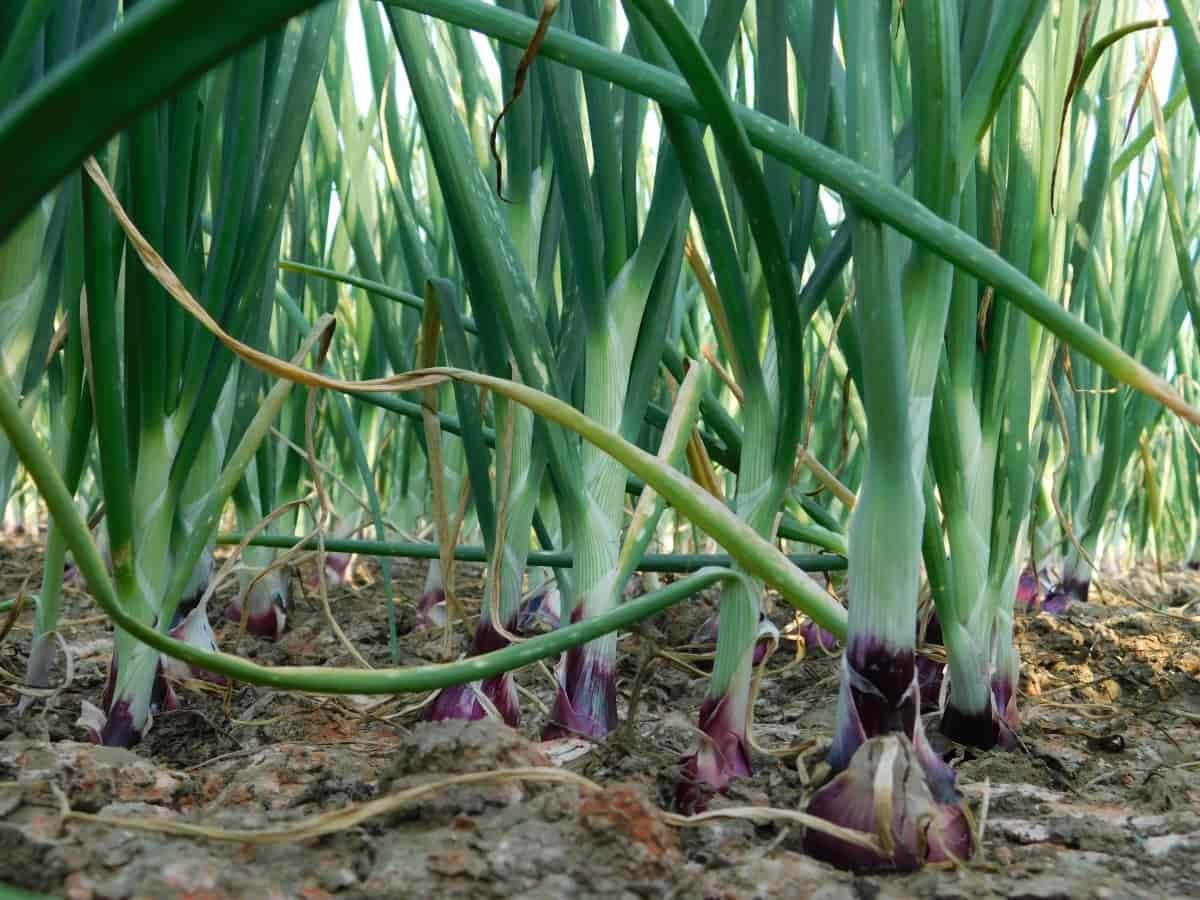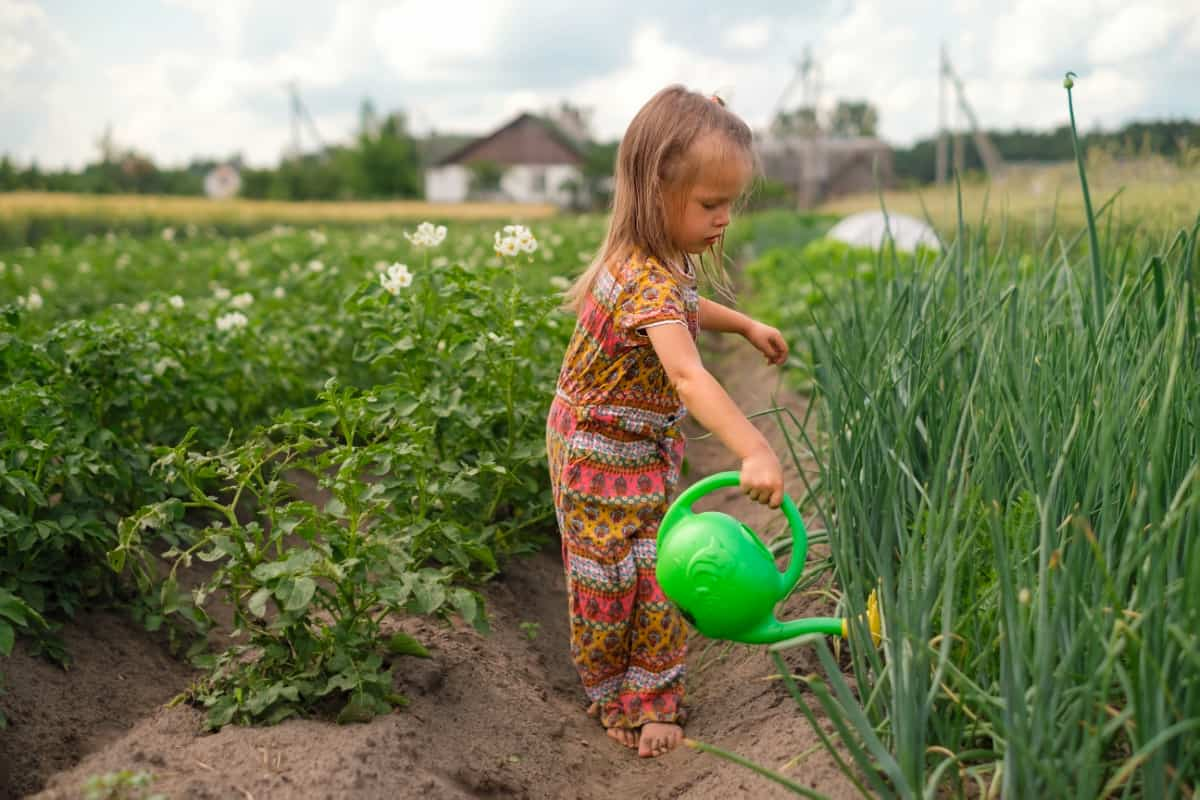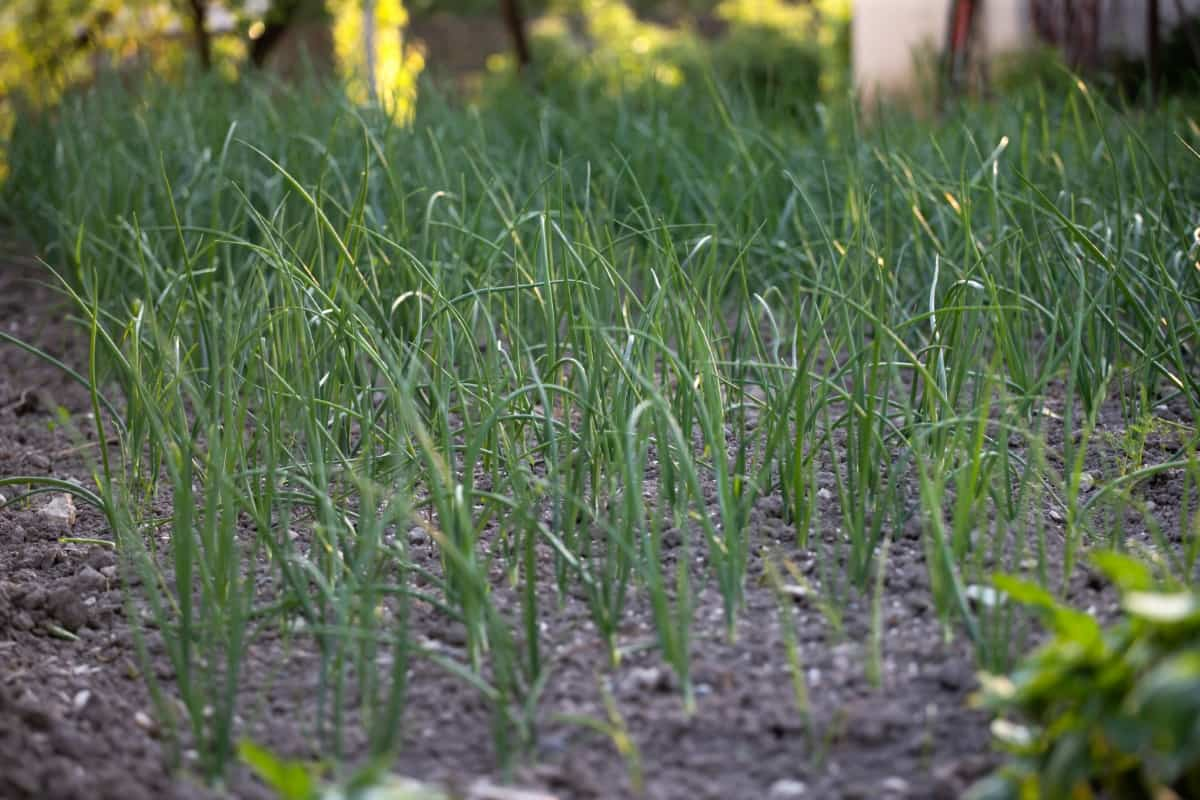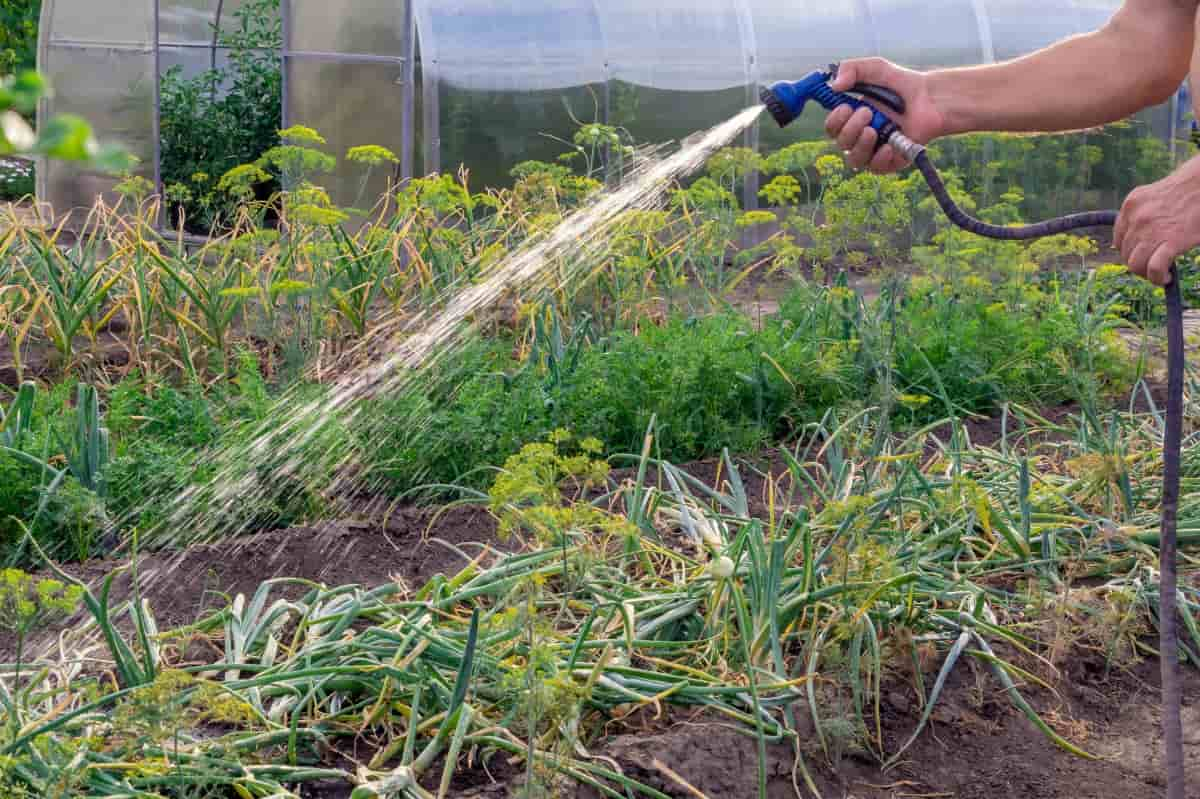Onion companion plants can bring various benefits, from deterring pests to enhancing soil fertility. These factors help to increase the growth and yield of onion crops. Choosing the best companion plants for onion is a key consideration for every gardener or farmer seeking to maximize their yield. At the same time, understanding which plants should not be planted next to onions will also ensure that the growth and productivity of your onion crop are not adversely affected.

Benefits of Companion Plants for Onions in the Garden
Companion planting is an age-old gardening practice involving growing different plant species together for mutual benefit. When applied to onions, the benefits of companion plants can be extensive. Onion companion plants’ benefits range from promoting robust growth and better yield to protecting the onion plants from pests and diseases. Companion plants for onions can also help to improve soil fertility and enhance the overall productivity of your garden.
One of the best ways to capitalize on these benefits is by knowing what grows well with onion. Choosing the right companion plants boosts onion growth and increases yields. Understanding what you should not plant next to the onion is equally important, as some plants can harm your onion crop.
Best Companion Plants for Onions to Deter Pests
Choosing the best companion plants for onions to deter pests is crucial for a successful yield. Certain plants naturally repel pests common to onions, making them excellent companion plants. For instance, chamomile and summer savory can deter the onion fly, a common pest that can seriously damage an onion crop. Other plants, like marigolds, can discourage nematodes from infesting your onions.
Bad companion plants for onions are those that attract pests harmful to onions. For example, beans and peas attract the same types of aphids that prey on onion plants, making them bad choices for companion planting with onions. Choosing the right companion plants can reduce the need for harmful chemical pesticides, leading to a healthier and more sustainable onion crop.
Onion Companion Plants for Improved Pollination
Some onion companion plants can help improve pollination, which is essential for healthy growth and yield. For example, borage, a flowering herb, attracts pollinators like bees and butterflies to the garden, promoting better pollination. Furthermore, the blue flowers of the borage plant can make it easier for these beneficial insects to spot your onion flowers, further improving pollination. Avoid planting crops like beans and peas near onions as they compete for pollinators, potentially hindering the pollination of your onions.
In case you missed it: Onion Growing Stages Timeline: From Seed Germination to Harvest

Companion Plants for Onion in Containers
Growing onions in containers maximizes small garden space, and companion plants add extra benefits. Carrots, lettuce, and beets are known to grow well with onions, making them excellent choices for companion planting in containers. These plants share a symbiotic relationship with onions, benefiting each other differently. However, keep in mind to avoid planting onions with other bulbous plants like garlic or leeks in containers, as they compete for nutrients and space.
Companion Herbs for Onions in Organic Gardening
In organic gardening, companion herbs for onions can bring about significant benefits. Certain herbs like dill, chamomile, and summer savory deter pests and improve the flavor of onions. Carrots are another good companion for onions in an organic garden setting. Notably, the carrot fly, a common pest of carrot crops, is repelled by the smell of onions, offering a natural and organic way to protect your carrots. Be careful not to plant onions near beans and peas, as they can inhibit each other’s growth.
Flowering Companion Plants for Onions to Attract Beneficial Insects
Attracting beneficial insects is another key advantage of using flowering companion plants for onions. Flowers like marigolds, nasturtium, and calendula attract insects that prey on common onion pests. This helps to naturally control pest populations, reducing the need for chemical pesticides. Simultaneously, these flowers enhance your garden with vibrant colors, making it both fruitful and aesthetically pleasing.
In case you missed it: Onion Growing Stages Timeline: From Seed Germination to Harvest

Companion Vegetables for Onions in Raised Beds
Raised bed gardening is increasingly popular, and companion vegetables for onions can be highly beneficial. Root vegetables like carrots, beets, and parsnips can be excellent companions for onions in raised beds. These vegetables share similar growing conditions with onions and do not compete with them for nutrients. Conversely, avoid planting onions beside other alliums like garlic and leeks in raised beds, as they can attract similar pests and diseases.
Companion Plants for Onions to Improve Soil Fertility
Some companion plants for onions can help improve soil fertility, promoting healthier and more productive onion plants. For instance, planting onions near legumes like peas and beans can improve soil fertility. These plants fix nitrogen from the air into the soil, which onions can use for growth. However, avoid planting onions next to crops that are heavy feeders, like corn or tomatoes, as they can deplete the soil with essential nutrients.
Companion Plants Chart for Onions in the Garden
A companion plants chart for onions can be a helpful tool for planning your garden. This chart will detail what grows well with onions and should not be planted next to onions, providing a clear guide for your gardening endeavors. An ideal companion plants chart will include various plants, such as herbs, vegetables, and flowers, offering diverse options for companion planting with onions.
Understanding Onion Companion Plants Rotation
Rotating companion plants for onions in the garden is vital to sustainable gardening. It entails changing the onions’ position and companion plants each growing season. This can disrupt the life cycles of pests and diseases, reducing their impact on crops. It also prevents the depletion of nutrients from the soil, ensuring that your onions and their companion plants have a rich source of nutrients each year.
In case you missed it: Frequently Asked Questions About Onion Farming

Remember to keep track of the rotation schedule and avoid planting onions consecutively in the same spot, which could make them more susceptible to pests and diseases. Furthermore, it’s crucial not to rotate onions with plants that don’t grow well, such as beans and peas. This method is about moving onions around and carefully planning where to place their companion plants. With careful planning and implementation, rotating onion companion plants can significantly enhance the health and productivity of your garden.
Conclusion
Onion companion plants can play a vital role in maximizing the growth and yield of your onion crops. From deterring pests and improving pollination to enhancing soil fertility and attracting beneficial insects, the benefits of companion planting with onions are manifold. Improve your garden with healthier and more productivity by learning suitable and unsuitable companions for onions.
- Feed Your Flock for Less: Top 10 Tips to Save on Chicken Feed
- Ultimate Guide to Ossabaw Island Hog: Breeding, Raising, Diet, and Care
- Hatching Answers: The Top 10 Reasons Your Chickens Aren’t Laying Eggs
- Eggs and Economics: Breaking Down the Cost of Raising Backyard Chickens
- Defend Your Greens: Proven Methods to Keep Iguanas Out of Your Garden
- Ultimate Guide to Cinnamon Queen Chicken: A Comprehensive Guide for Beginners
- Ultimate Guide to California Tan Chicken: Breeding, Raising, Diet, Egg-Production and Care
- Ultimate Guide to Marsh Daisy Chicken: Breeding, Raising, Diet, and Care
- 10 Types of Chicken Farming Businesses You Can Start for Profits